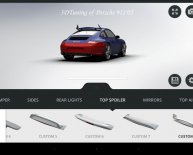
Car modifier online
This is Part 3 of our Google AdWords series by ex-Googler Anton McCarthy.
Introduction
To run a successful Google AdWords campaign, you NEED to understand keyword matching. It's one of the key factors in the set-up and management of a high-performing, cost-effective Google AdWords campaigns, especially for ecommerce stores. Using keyword matching, Google allows you to control which keywords searches may cause your ad to show. Therefore, it is crucial that you understand how keyword matching works, and how best to use it to your advantage.Let’s examine each match type, and the benefits of each one.
Google AdWords keyword match types include:
- Broad match
- Broad match modifier
- Phrase match
- Exact match
- Negative match
Now lets dig deep into each type and I'll tell you exactly how to leverage them to increase ecommerce sales.
1. Broad Match
This is the simplest match type, and the one that is probably the easiest to understand. It is also the default match type for any keyword. A keyword set to broad match will display ads on a wide range of variations of that keyword. These variations include plural and singular forms, misspellings, abbreviations, acronyms, and related terms.For example, if you add the keyword ‘car’ to your ad group, your ad may display to someone searching for ‘cheap cars’, ‘white car’ or ‘second-hand car’. It may also show for someone searching for ‘new auto’.
The use of broad match allows you to gather a wide set of data relating to which keywords customers are using to find you. It can be a useful match type to use at the outset of a campaign in particular, and when you may not be all that sure which keywords customers are most likely to use when searching for what it is you sell. Then, once you have collected a reasonable amount of data on the keywords which are triggering your ads to display, you can use it to refine your campaign, eliminating the keywords which aren’t bringing you value.
The most obvious downside to broad match is that your ad can show for keywords which may not be all that relevant, meaning you may attract clicks from users who are not actively seeking your product or service. In other words, not every search comes with the intention to purchase. For example, is someone who searches for ‘new camera’ already in purchase mode, or just looking for information and reviews?
You can address this issue by ensuring you have a good combination of other match types in your campaign, as well as using negative keywords, which we will come to later.
I recommend using broad match sparingly, and monitoring the statistics which relate to broad match keywords carefully and frequently. You can also use the ‘search terms report’ to identify irrelevant searches which resulted in a click on your ad, and then add these terms as negative match keywords.
2. Broad Match Modifier
Broad match modifier allows your ads to show for more closely related variations of your keywords. It is a useful option for when you want to be found for a broad range of terms, but want to restrict this range to closely related terms which contain your keyword. So, the keyword term ‘+green car’ will allow your ads to show for ‘budget green car’, but not for ‘blue car’.Depending on the keywords you have entered into your ad group, your ads may still display for terms that are not as tightly targeted to what you are selling. This means that you should ensure you have used as many appropriate negative keywords as possible, and that you monitor your campaign closely for the results and conversions you are achieving from your broad match modifier keywords.
To use broad match modifier, simply add the plus sign (+) beside the keyword you would like to trigger your ad; e.g. +green car.
3. Phrase Match
You can think of phrase match as a significantly more restrictive version of broad match. With phrase match, your ads will display for keyword searches which match your keywords exactly or with words before and after it.An example is the phrase match keyword “green car”. For your ad to display on a search relating to ‘green car’, the search has to include those two words, in that specific order. This means that someone searching for ‘new green car’ is eligible to see your ad, but someone searching for ‘green budget car’, is not.
Phrase match offers some key advantages. It enables you to closely control the searches which will trigger your ad. In addition, you may likely pay less for your clicks using phrase match, since your keywords are more likely to be highly relevant to your ad text and to the products you sell on your landing page. With AdWords, greater relevance helps lead to lower overall cost in terms of the average cost-per-click (avg. CPC) you are likely to pay.
With phrase match, since you only show for very closely related terms, you may end up missing some keyword variants that may be relevant or useful to your campaign. However, you can help prevent this by coming up with a well-thought out list of relevant campaign keywords.

















